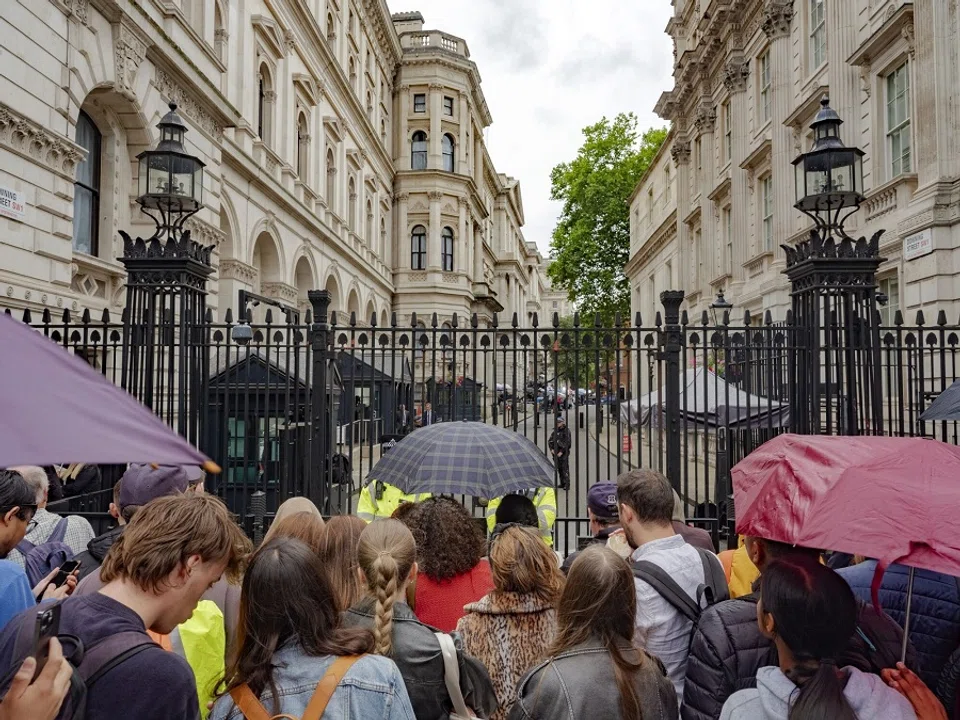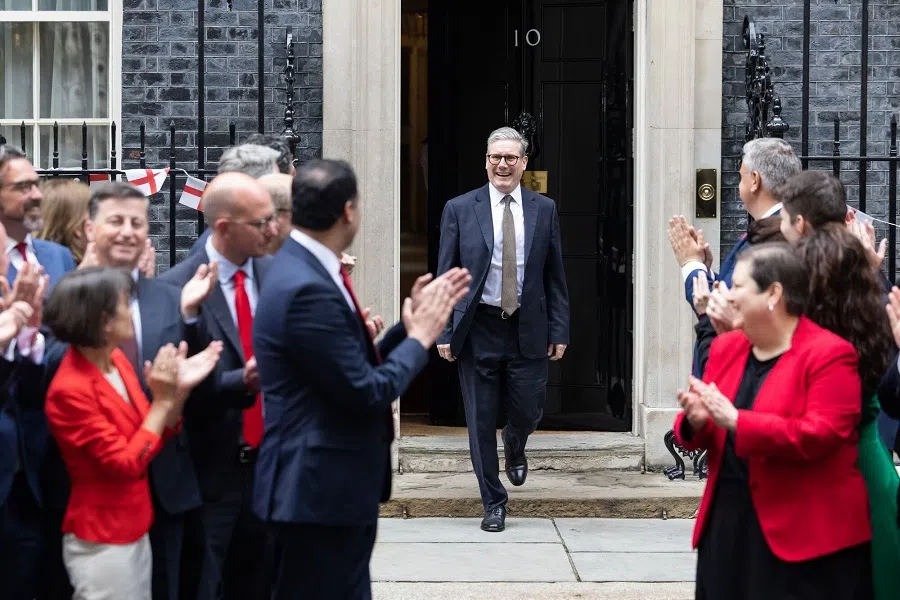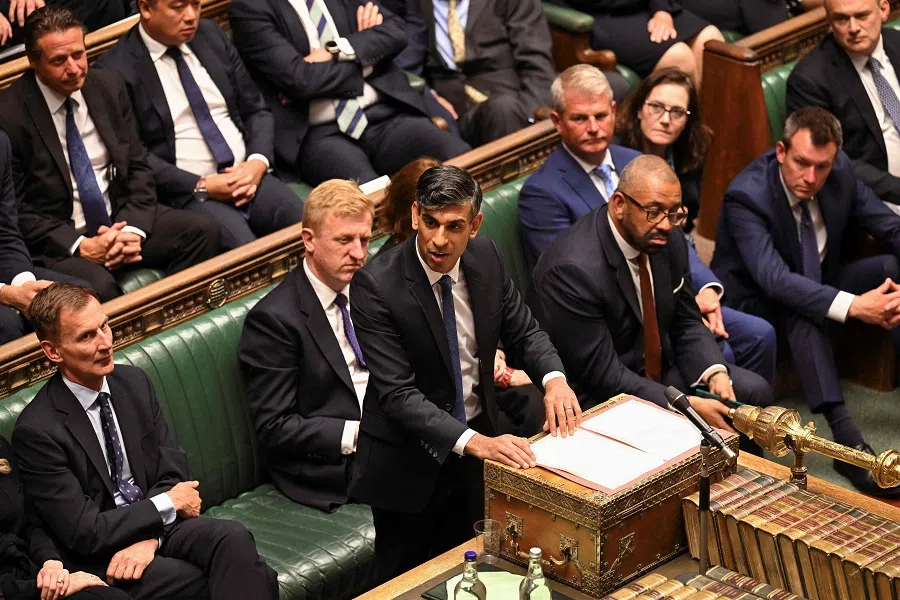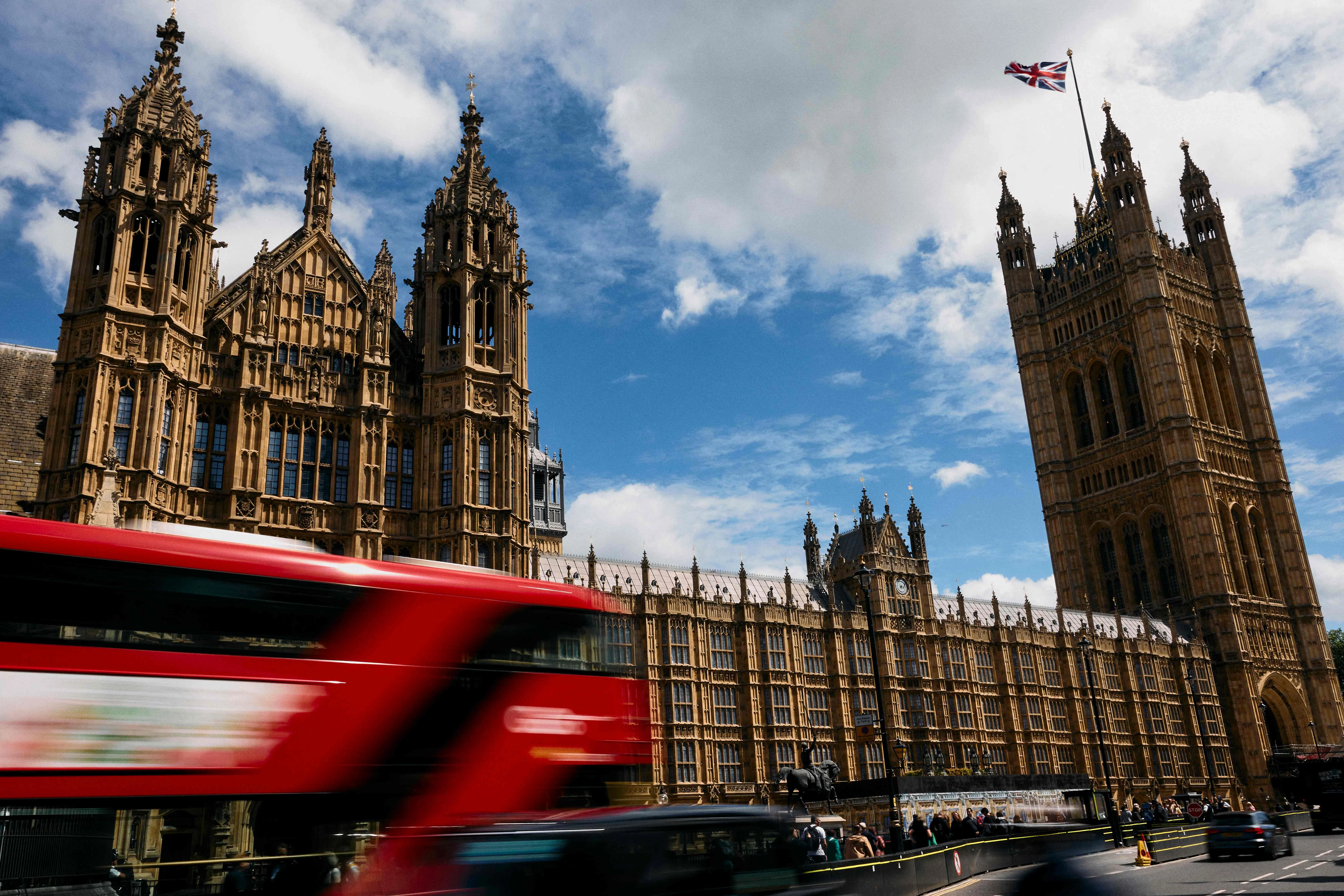What went wrong with ‘broken’ Britain?
Former journalist Goh Choon Kang laments the decline of the UK, which harboured great dreams of being “Singapore-upon-Thames”. What led to this?

The 2024 UK general election on 4 July concluded with the ruling Conservative Party suffering its worst loss in 190 years, which the media likened to a “historic” defeat. The opposition Labour Party won about 64% of the seats and can govern alone. But upon closer look, the Labour Party only won about 34% of the total votes cast, which means that it only received the support of a third of voters.
Loss of supporters
Thus, some analysts believe that the election outcome was not so much a victory for the Labour Party as it was a huge loss of votes for the Conservative Party, indicating that many of its original supporters have turned away from the party in disappointment.
The Conservative Party indeed lost a huge chunk of their votes, which were dispersed to other parties. Aside from the Labour Party, the bulk of their votes went to right-wing parties, making Reform UK (originally the Brexit Party) the third ranked political party in terms of votes garnered (14%), although it only won five seats. Liberal Democrats, the fourth ranked political party in terms of vote share (12%) and third largest party in the UK, won 72 seats, a whopping 61 more than at the previous election.
The disproportionate vote and seat share is related to the UK’s first-past-the-post (FPTP) voting system. A characteristic of this system is that in each constituency, the candidate with the most votes becomes a member of parliament, regardless of how many candidates are competing or how many votes they receive. In this election, there were about a dozen candidates who merely got about a hundred more votes than their opponents.

This system benefits the ruling party. With 60% of the seats in parliament, the ruling party is better equipped to handle the challenges and constraints posed by the opposition, thereby facilitating the passage of bills and policy implementation.
The seats won by the Labour Party this time are also spread across four parts of the UK (England, Scotland, Wales and Northern Ireland) and can be said to be more representative. The unique Scottish National Party that once pushed for an independence referendum also suffered a huge loss at the election, and is left with just nine seats from its previous 48.
To some extent, British politics is trapped in performance politics — no matter how realistic it is, politics has become but a show.
No accomplishment
The election outcome suggests that most UK voters are determined to throw the Conservative Party out of power. They think that the Conservative Party is to blame for many of Britain’s problems. Compared with the 2019 general election, the party only won 121 seats this time, losing 244 of its seats. It also merely earned a vote share of 24%.
The BBC categorised its massive defeat into three factors: the right-wing, social unrest and the cost of living. While analysing the UK’s problems within this framework may not be entirely accurate, it is not too far from the truth either. But the root cause of the problem perhaps still lies in the decay of the Conservative Party.
The so-called right-wing factor refers to the current right-wing surge across Europe. But some analysts think that this is but a symptom of Europe’s political disease. It can also be said that the phenomenon is triggered by the latter two factors.

The Conservative Party’s 14 year-rule cannot be summarised into political turmoil alone. There has also been a lack of accomplishments, with most promises to voters going unfulfilled. To some extent, British politics is trapped in performance politics — no matter how realistic it is, politics has become but a show.
Since the Conservative Party beat the Labour Party in 2010, it has changed five prime ministers: David Cameron, Theresa May, Boris Johnson, Liz Truss and Rishi Sunak. The UK’s shortest-serving prime minister even emerged among them — Truss, who was only in office for 49 days. Some mocked that even a supermarket lettuce outlasted her tenure.
Five consecutive prime ministers took office under the Conservative Party’s rule, with the situation going south. Hence, the slogan “Britain is broken” popularised by Reform UK party leader Nigel Farage emerged.
The most crucial change in these 14 years is perhaps the Brexit vote. Cameron not only lost his political career over it, it also plunged the UK into an unwarranted predicament. In 2019, Johnson was elected prime minister, and proclaimed his wish to end the UK’s decline and return to the golden era — but this was a mere slogan. His “grand ambition” was built on a fantasy, believing that Brexit, moving away from China and becoming pro-US would enable him to create a new spring. The reality was far from it.
Many British who voted in favour of Brexit are now unwilling to talk about it, as they know that they have been hoodwinked by politicians. Notions of “recaptured sovereignty” put forth by Johnson and his camp makes for an enticing slogan, because many among the British erroneously believed that the UK’s problems were caused by the EU, which supposedly took away much of the UK’s autonomy. Hence, by taking this back, all problems would be easily solved.
Massive loss from Brexit
The negative impact from Brexit and the loss of the European markets was far beyond many people’s expectations. In early 2024, Labour Party’s Sadiq Khan, the mayor of London, cited research by economic consulting firm Cambridge Econometrics that found that to date, Brexit resulted in a 140 billion pounds (US$180 billion) loss for the UK and a 6% decline in its economy. London itself saw its economy shrink by 30 billion pounds, with the salaries of the average Londoner declining as well.
Latching onto the US after Brexit did not bring the UK any benefit. On top of losing the large European market, the UK also sullied its relationship with China.

The research estimated that Brexit caused a loss of 1.8 million jobs, of which 290,000 were in London. Future projections were even more grim. By 2035, it is forecast that the UK would lose up to 311 billion pounds due to Brexit — be it in terms of production, investment, employment, export or import, all areas would fare worse than when the UK was part of the EU.
Latching onto the US after Brexit did not bring the UK any benefit. On top of losing the large European market, the UK also sullied its relationship with China. At the same time, it suffered from the pandemic and the outbreak of the Russia-Ukraine war, which resulted in rising cost of living and declining living standards, leading to public dissatisfaction. Already stretched to its limits, the National Health Service was on the brink of breaking down — even nurses took to the streets in protest, asking for a 17.6% raise.
Trail of poor leadership
The Conservative Party has consecutively produced five ineffective prime ministers who have failed to address domestic issues in the UK politically and have been unable to present governance solutions. As a result, they have resorted to blindly following the US in finding scapegoats, including blaming immigration influxes, EU regulations, competition from China, and more. This is likely the root cause of the UK’s gradual general decline in recent years.
It seemed all the more natural that after generations of squandering, the UK is now on the decline.
A friend who studied in the UK in the 1960s told me that back then, Commonwealth students could enjoy free medical services and university education; one could clearly see how much riches the British empire siphoned from their colonies. It seemed all the more natural that after generations of squandering, the UK is now on the decline.
The past is but a spectre, and the empire where the sun never sets is now a part of history. The UK of today seems to be declining as well.

The people are fed up with the Conservatives and hope to change the status quo. Keir Starmer, who leads the Labour Party, has heeded the cries of the people and called for change — and indeed an opportunity for change has come about. But it remains to be seen what moves he would make; we have yet to see any concrete plans from him.
Johnson et al once also issued many beautiful promises, including the dream that the UK after Brexit would become a “Singapore-upon-Thames”; all these eventually became a pipe dream. It is easy to proclaim specious political slogans and build castles in the sky — it is a tall order to repair a country that has suffered years of decay.
This article was first published in Lianhe Zaobao as “联合王国的黄昏”.



![[Video] George Yeo: America’s deep pain — and why China won’t colonise](https://cassette.sphdigital.com.sg/image/thinkchina/15083e45d96c12390bdea6af2daf19fd9fcd875aa44a0f92796f34e3dad561cc)
![[Big read] When the Arctic opens, what happens to Singapore?](https://cassette.sphdigital.com.sg/image/thinkchina/da65edebca34645c711c55e83e9877109b3c53847ebb1305573974651df1d13a)
